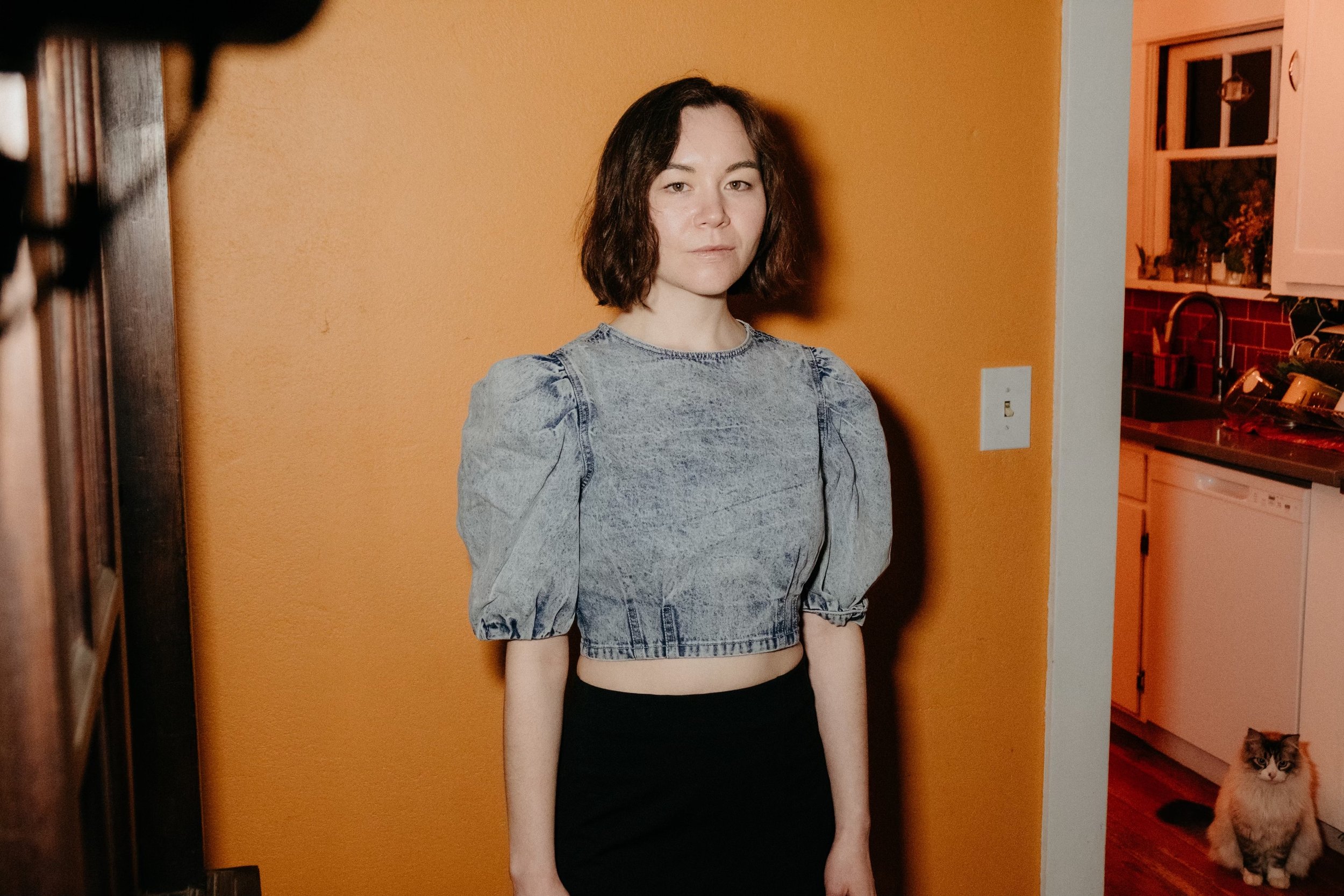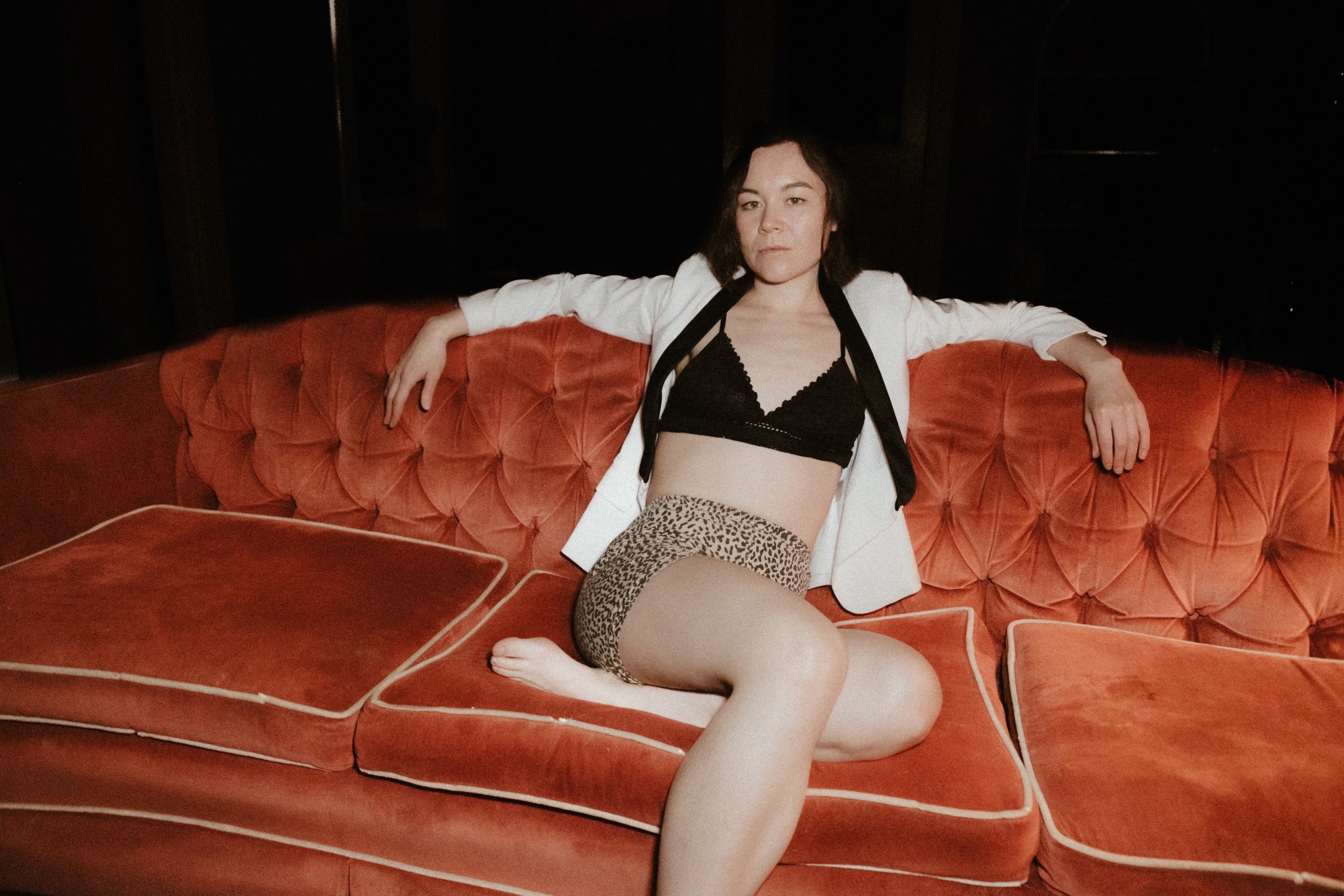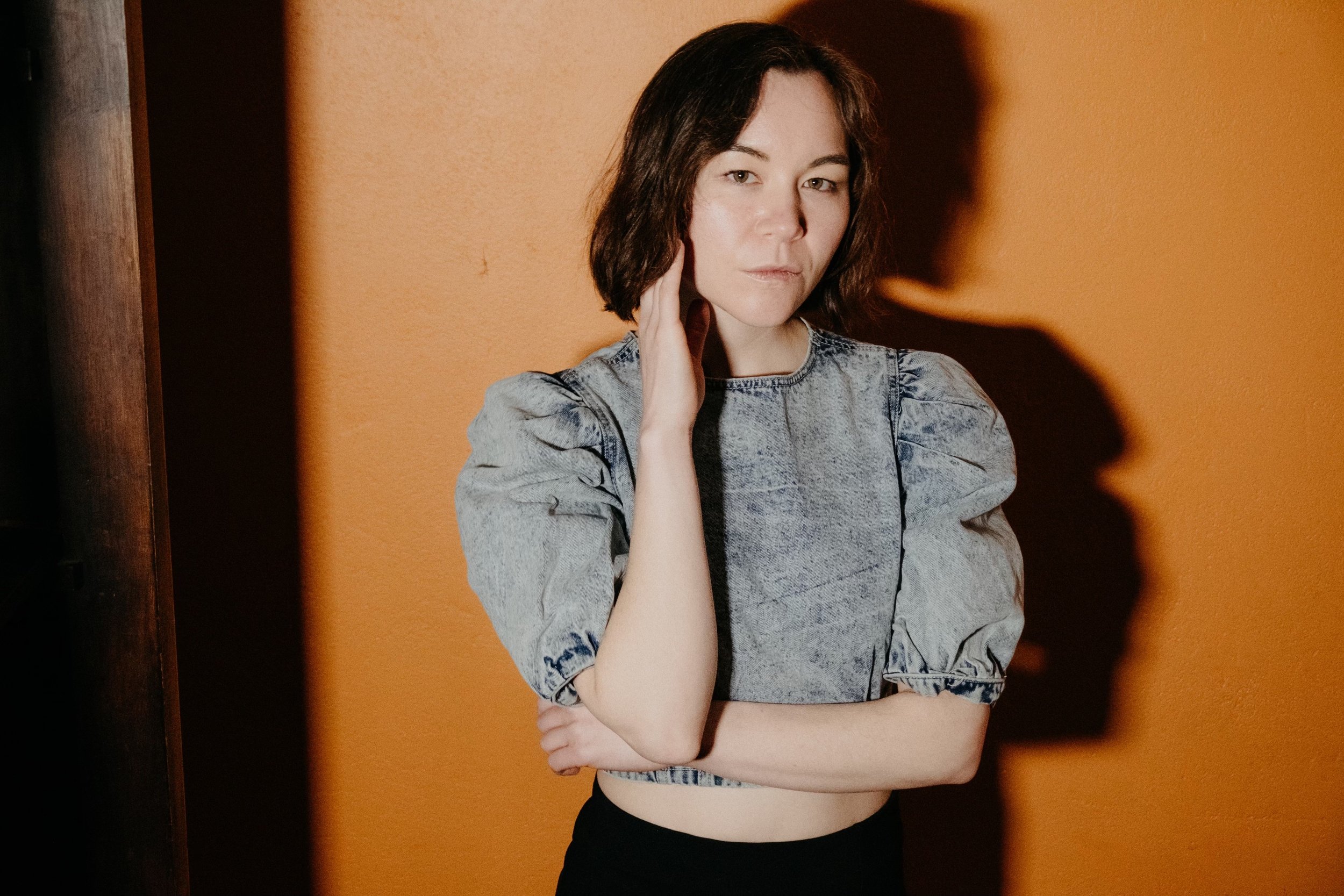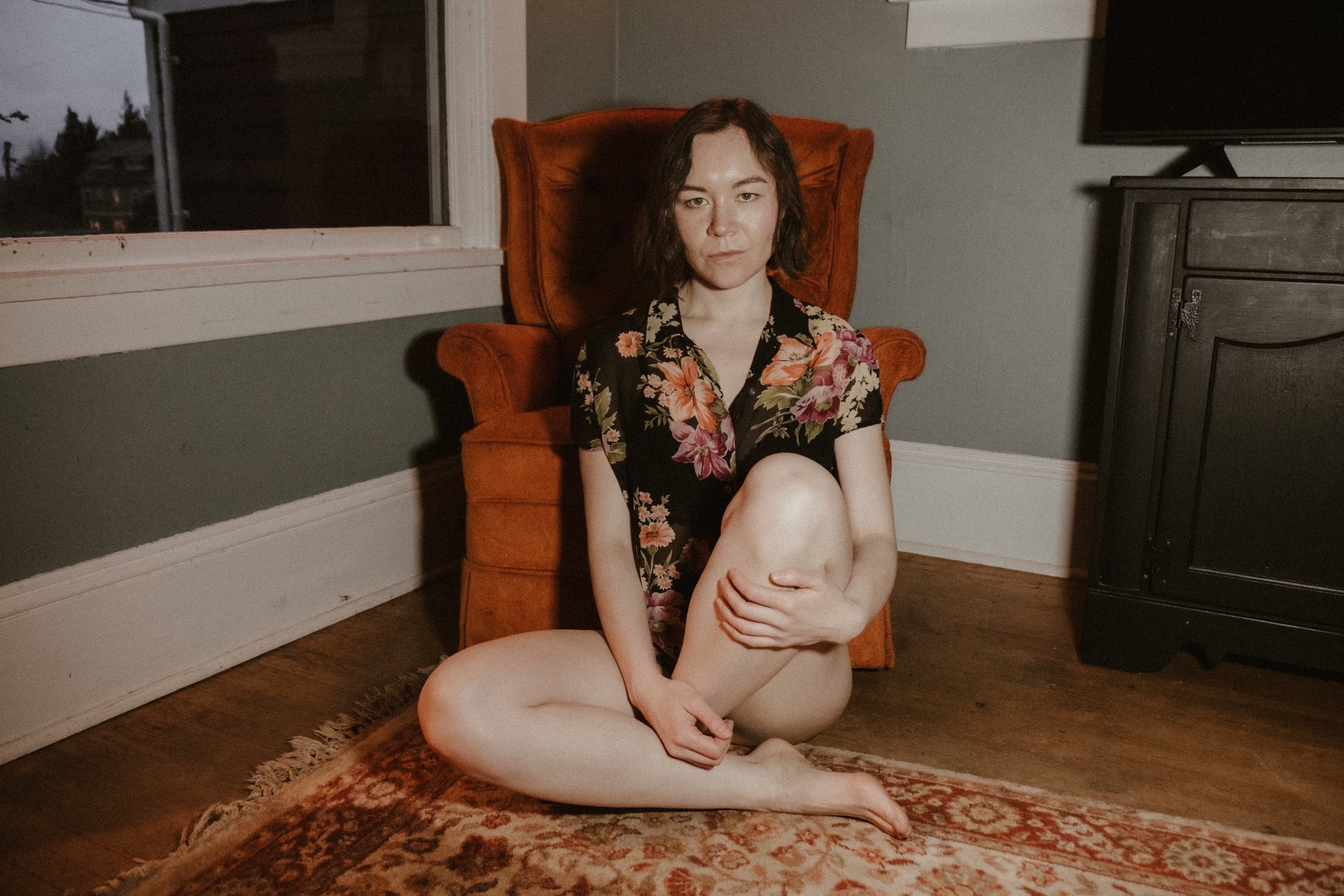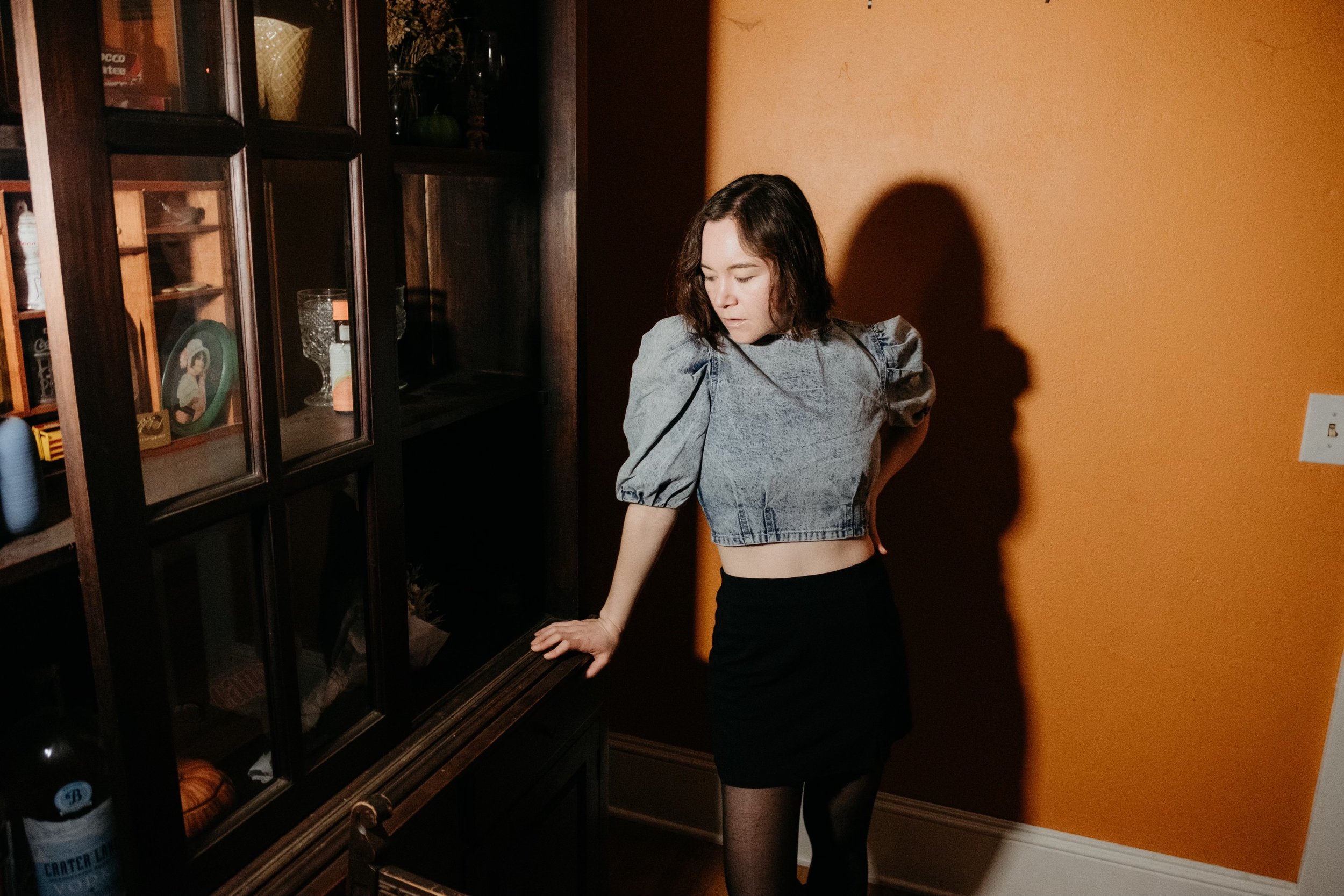Click Image to Download!
When Maria Maita-Keppeler was in college, she studied the ancient art of Japanese woodblock printmaking. “By the nature of the medium, you have to be bold,” she says — but, you also have to be delicate, deliberate, exacting. All those little cuts on their own add up to the whole — to a picture, a story, a life.
The Japanese-American singer-songwriter applies that same approach to her band, MAITA; she only writes songs she intends to finish. She only makes cuts in service of the whole. And once the debris has been blown away, the melodies remain — vibrant, sharp, and often heartbreaking. The band’s latest LP, want, out July 25 via Fluff & Gravy Records, is all of the above. A razor’s edge look at a relationship in turmoil, the record serves to strip away everything undesired in Maita-Keppeler’s life, leaving behind only that titular word: want.
“The album allowed me this opportunity to be a little more courageous about my feelings,” Maita-Keppeler says. “I grew up feeling very much like the peacekeeper. Now, I have to be really assertive about what I want for myself.” See? Bold.
A Eugene, Oregon native, Maita-Keppeler grew up straddling American and Japanese culture; her father was the former, her mother the latter. Still, both parents contributed to her musical exploration — mom and dad played guitar, while Maita-Keppeler’s mother wrote songs in the language of her homeland. Skilled in violin and guitar, Maita-Keppeler really keyed into music when she started listening to early aughts indie songwriters like Bright Eyes, Elliott Smith, and Regina Spektor. She then set out getting over her stage fright via open mic stints, and started writing her own songs in lieu of a fateful book report.
After college, Maita-Keppeler moved to Portland, where she met guitarist/producer Matthew Zeltzer and christened their band MAITA, after her mother’s maiden name. The two toured as a duo, finding their home somewhere between Portland’s Americana-folk and indie-rock scene, and self-releasing their debut EP, Waterbearer, in 2017. More of a singer-songwriter affair than their current sound, the record nevertheless hinted at what MAITA would become: a gorgeous mix of chamber folk and indie rock.
That same year, the band rounded out the crew with multi-instrumentalists Nevada Sowle and Cooper Trail, a bass and drums duo from Moscow, Idaho. The pair came on board when MAITA was recording its first LP, Best Wishes, at the Ok Theatre in the tiny town of Enterprise, Oregon. “A lot of the songs were just about me trying to parse through memories and relationships and hold myself accountable for my own feelings,” Maita-Keppeler recalls. “I was so young when I wrote that record. It was about college days transitioning into early adulthood.”
A coup for MAITA, the record was released via Kill Rock Stars in May 2020 — but it was bittersweet, according to Maita-Keppeler. The album came out peak-pandemic and they were unable to tour. And since COVID threw a wrench in the works, the band felt a bit like they had to reintroduce themselves with 2022’s I Just Want to Be Wild for You, which they recorded back in 2020. “This record was about how people can lose connection — whether with yourself, a partner or the world around you,” Maita-Keppeler says. “There’s this disillusionment that can happen in our modern world. But there’s this wealth of passion that lies underneath those moments — a desperation that's not being fulfilled.”
As restrictions loosened MAITA began to see the benefit of rave reviews from KEXP, SPIN, FLOOD Magazine, and NPR’s Bob Boilen. They toured the US and Europe and played shows opening for the likes of Mirah, Blind Pilot, Horse Feathers, Typhoon, and garnered featured slots at SXSW and Treefort as well. Meanwhile, the band was working on polishing up their third LP, want, which Maita-Keppeler penned during the isolation of the pandemic. A fiercely private songwriter who draws mostly on her own experience for song fodder, Maita-Keppeler dug deeper than ever into her heart. “This album feels like the most cohesive of any batch of songs that I'd written, because the slate was pretty blank in terms of what was going on around me,” she recalls, adding that she spent much of the pandemic learning how a long-term relationship can be tested by too much time and space. “I had the chance to feel all these feelings without a lot of distractions from the outside world.”
Recorded at Echo Echo in Portland, Oregon in the winter of 2022, the record serves as the most crystallized of MAITA’s works thus far; like Maita-Keppeler’s screen prints, which she does for each song she writes, it’s a stark, arresting image of a place in lost time. “We felt like the songwriting had a kind of visceral quality to it,” she says. “I love high highs and low lows.” Through it all, though, runs the theme of wanting. “These songs all explore desire within the framework of a long-term relationship where you're just trying to push and dig deeper,” Maita-Keppeler says. “I feel like not a lot of songs really get to the core of those struggles and how nuanced they actually are.”
“girl at the bar” slinks in first, a rumination on the desire to be an object of lust, set against the backdrop of a dive bar fever dream. “It’s a very raw exploration on feelings of inadequacy within a relationship,” Maita-Keppeler says. “This idea of feeling insecure that you aren't a stranger to your partner — you’re the safe person. But you wish you could be this other more sexualized or mysterious sort of character.” The honeyed “breakup song x3” belies the desperation therein, detailing a series of breakups that leave the protagonist adrift, unable to truly remember why they wanted their partner to stay in the first place. “When you're the person who's getting broken up with you don't really question like, ‘Well, what about me? What do I want?’” the musician says.
“cold light” kicks down the door growling — despite the fact that it’s about the darkness that creeps into our brain unbidden.”That song explores patterns of depression and anxiety, the creeping of a coolness into places that should be warm and easy,” Maita-Keppeler says. The gloomy “at a bad time” flips the script, tossing us into the head of the person driving Maita-Keppeler to desperate distraction. “It was written from the perspective of a person who's not prepared to be a good partner or emotionally available,” she says. “The narrator is keenly aware of their own inability to be present for the person, whom they feel deserves more than they can offer.”
And then we’re roused at 3 a.m. with “waking up at night, again,” a tender anti-lullaby about depression and self-improvement. As Maita-Keppeler says: “Sometimes all you can do is research every vitamin, tackle every deficiency, gain control of some aspect of your life that perhaps might be improved upon.” The next track, “hotel,” might as well house the bar where the opening song takes place. A delicate cobweb of a song, it details how these liminal spaces can let us explore our private selves — whether you’re “watching porn, eating whatever you want — or just being on your own and having no audience, free,” Maita-Keppeler opines. That same theme reverberates through “almost nothing, keeps me alive,” which attempts to combat the blurring of individuality within a long-term relationship.
Nostalgia and desire tango over the next two songs — the ebullient “i used to feel different,” which Maita-Keppeler says is “about wanting to return to this state of wonderment that you might have had when you were younger,” and the serpentine “violet dream,” which is “a sexual frustration song about wanting to reach a new place with a partner — chasing that fire and trying to soak it up.” Still, one only has to listen to the aching “happy with you” to know relationships are never as simple as the physical — they’re a tapestry of love, pain, and bittersweet memories. “That song is about the fickle nature of anger and how you can forgive someone, but your body remembers the anger,” she says.
At the end of the record, Maita-Keppeler comes out the other side a little battered, but a lot closer to her initial goal: to want — and to not feel guilty about wanting. “i don’t wanna kill you” cruises in like a getaway car — white-knuckling the twists and turns of a relationship as it threatens to reach its breaking point. “Sometimes just being true to your own desires means not everyone is happy,” Maita-Keppeler says. “If the album is about want, and it's about desire, it’s also about being in a place where you’re like, ‘Yes, I am going to try to get what I want and do what I want. And I’m going to do it for me.’” And that picture is worth a thousand lyrics.


